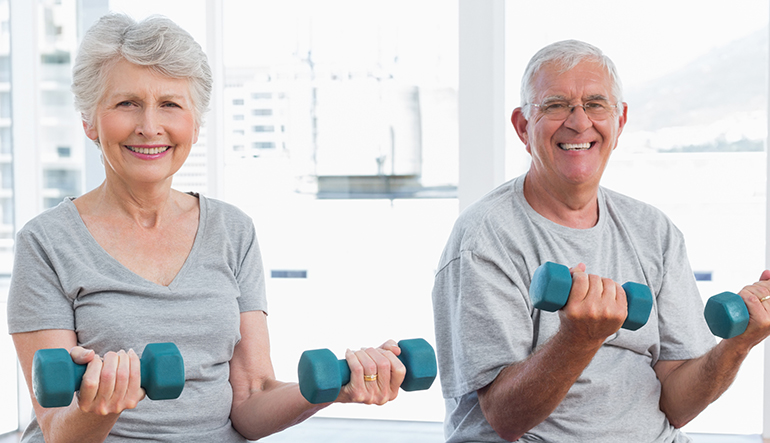Why Exercise is Important for Senior Health
Health and medical experts always stress the importance of exercising among seniors. As we age, we become more prone to medical conditions and health risks. Regularly exercising helps reduce related risks and improves the overall well-being of seniors. This can help them live independently and prevent accidents from happening. Even though there are medical alert systems available for seniors which can allow them to quickly get help if an emergency situation arises, it’s still important for them to take steps to stay healthy. By being strong and fit, an elderly person can enjoy an independent lifestyle. The rest of this post covers some of the other benefits that seniors can expect from regular exercise.
- Better immune function
A healthier body has the ability to effectively fight off diseases and infections before they become more serious issues. Studies have shown that seniors who regularly exercise are less prone to developing infections and are also less likely to get life-threatening and devastating diseases when compared to those who don’t exercise.
- Stronger joints and bones
Flexibility and joint exercises improve the condition of joints and bone density. This results in seniors being able to stay active longer, allowing them to take part in playing various sports regardless of their age. According to research, women lose up to two percent of bone mass every year after they hit menopause. This can contribute to fractures and even osteoporosis. Exercising helps prevent deterioration and bone loss, in turn, preventing the risk of falls and other related accidents.
- Enhanced cardiovascular function
When elderly people take part in cardiovascular exercises up to three times a week, it boosts blood circulation throughout their body while improving the way their heart functions. This helps in preventing problems such as hypertension, heart diseases and diabetes. An added benefit is better alertness and focus compared to individuals who lead sedentary lifestyles.
- Prevention of serious diseases
Seniors should focus on aerobic conditioning, strength training, flexibility and balance. The elderly can tolerate these activities better when these areas are addressed. Doing so can aid in preventing the development of serious illnesses such as cancer, Alzheimer’s disease and a range of heart conditions. This helps them cope much better with everyday tasks and the demands which are made on their bodies. It also allows them to easily shift from one activity to another.
- Improved balance
Most seniors over the age of 65 suffer from falls regularly. Strengthening the leg muscles by staying in shape improves their balance and keeps both their knees and feet in good condition greatly lowering the risk for falls. With flexibility and good balance, seniors can safely climb stairs and stand without pain or discomfort. It also enables them to continue performing everyday household tasks without difficulties.
- Improved mental clarity
One of the most frustrating side effects of growing older is losing our memory. Seniors dealing with Alzheimer’s disease and dementia enjoy more mental clarity through exercising not just the body, but their mind as well. Physical exercising increases the blood flow which makes the brain work faster and better.
Exercising helps prevent serious physical problems and memory decline among seniors. Encouraging your loved one to stay active can enable them to enjoy their senior years in a much better way with fewer physical complaints.


